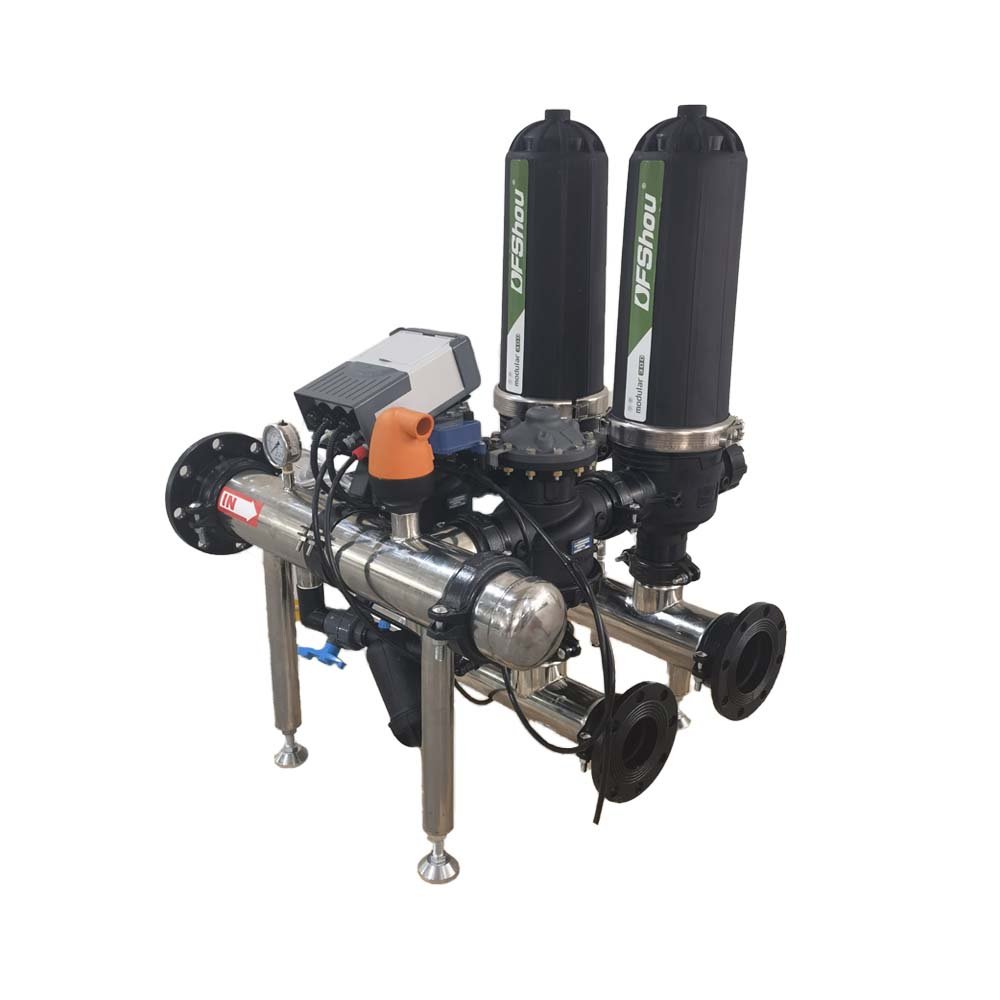Automatic filters use a self-cleaning mechanism to remove debris from the filter element. Discover how self-cleaning automatic irrigation filters remove debris from the filter element and keep your water flow uninterrupted. Read now!
How to do Automatic Irrigation Filters Work?
Automatic irrigation filters work by trapping debris from the water as it passes through the filter element. This debris can include sand, silt, algae, and other organic matter, all of which can cause blockages and affect the flow of water through the system. Over time, this can cause a buildup of debris on the filter element, reducing the efficiency of the filter.
To prevent this, automatic irrigation filters use a self-cleaning mechanism that removes the debris from the filter element without the need for manual intervention. Typically, this is done by using a backwash system that reverses the flow of water through the filter. This causes the debris to be flushed out of the filter and into a collection chamber, where it can be easily disposed of.
Benefits of Automatic Irrigation Filters
The self-cleaning mechanism of automatic irrigation filters offers several advantages over traditional filters that require frequent cleaning or replacement. These benefits include:
- Reduced Maintenance Costs: Automatic irrigation filters require little to no maintenance, which can save you time and money in the long run. Since they clean themselves, you don’t have to worry about manual cleaning or filter replacements.
- Improved Water Quality: By removing debris from the water, automatic irrigation filters can improve the quality of the water that reaches your plants. This can result in healthier plants, higher yields, and better overall growth.
- Increased Efficiency: Automatic irrigation filters can help maintain the flow of water through your irrigation system, which can increase efficiency and reduce the risk of blockages or clogs.
FAQs
Q: How often should I backwash my automatic irrigation filter?
A: The frequency of backwashing will depend on factors such as the level of debris in your water and the size of your filter. Typically, automatic irrigation filters should be backwash at least once a week or as recommended by the manufacturer.
Q: Can automatic irrigation filters be used with any type of irrigation system?
A: Yes, automatic irrigation filters can be used with drip irrigation, sprinkler irrigation, and other types of irrigation systems.
Conclusion
Automatic irrigation filters are an essential component of any irrigation system. By using a self-cleaning mechanism to remove debris from the filter element, these filters can ensure that your plants receive clean, sediment-free water. The benefits of automatic irrigation filters include reduced maintenance costs, improved water quality, and increased efficiency. So if you’re looking to keep your water flowing and your plants healthy, consider installing an automatic irrigation filter in your system.



